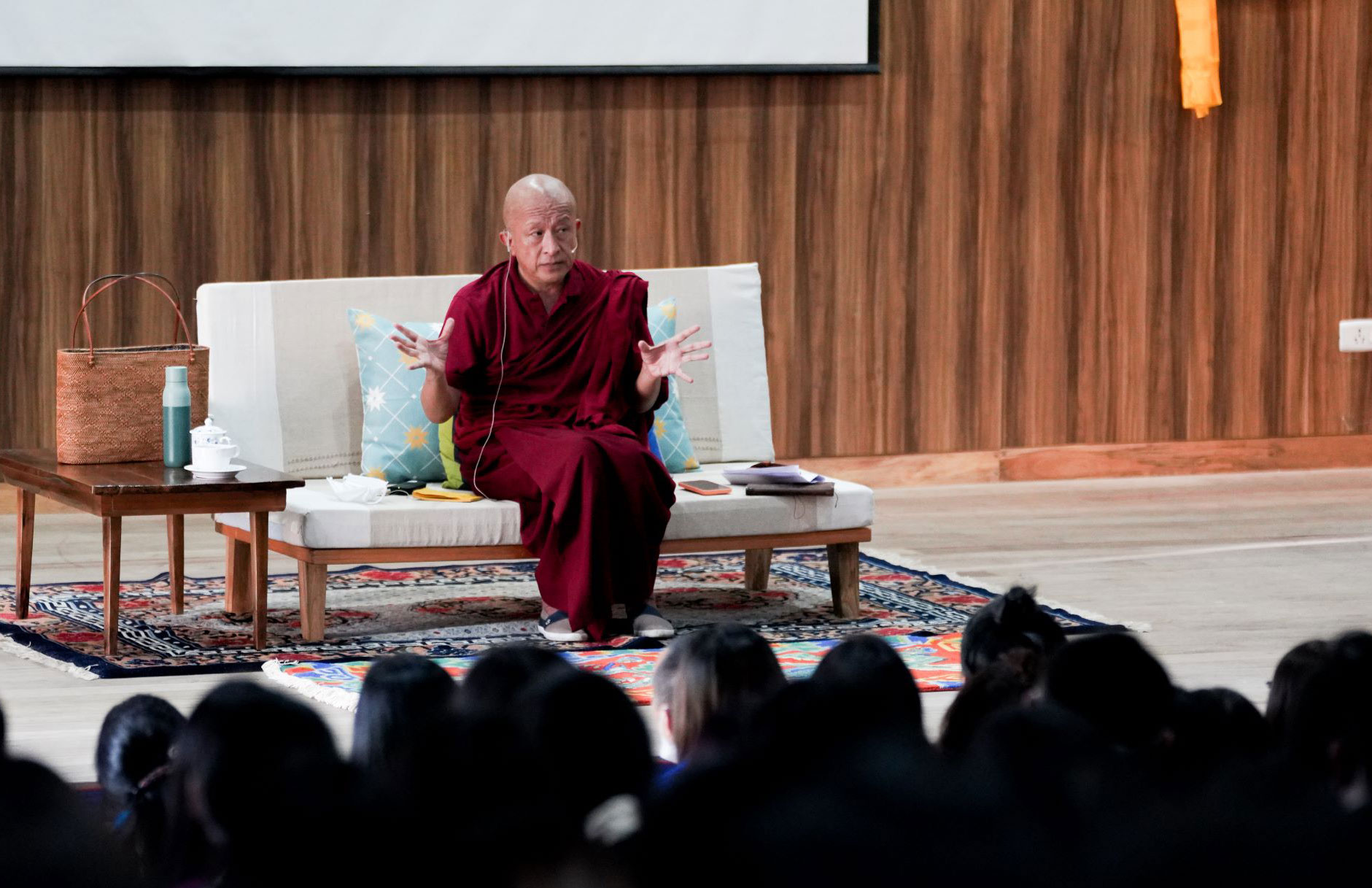Deriving wisdom from a 12th-century Zen master, Dogen, Dzongsar Jamyang Khyentse Rinpoche talked to more than 300 devotees, mostly millennials, in Thimphu last week on the importance of knowing and studying oneself.
Staff Reporter
To study dharma is to study oneself
To study oneself is to know there is no self
We think we know who we are. We have references to call ourselves as a father, a son, a friend, a Bhutanese and many other references that help construct an idea about ourselves, but it is important to study oneself, as we are the most important person in the whole world.
We are the centre of the world, yet we hardly study look inwards to understand ourselves. Curriculums in school have no ways to help us study about ourselves.
Buddha Maitreya, in a Mahayana text, stated that studying about self is giving up thinking that there is self. Sometimes, in order to qualify this is you, you think that you need to contribute, you need to add and you need to place something, but studying about self or a classic Buddhist understanding of studying self, is realising there is nothing to get rid off and nothing to adopt—the quintessential technique of Buddhism knowing there is nothing to abandon and nothing to adopt.
When we refer to ourselves, we talk about four things: body, feeling, mind or cognizance, and reference. When you try to look like someone and diet or choose a dress or shampoo, the size of a car or your house because you compare yourself with someone. We are so busy subtracting or adding.
Having a reference makes us busy and we lose ourselves. We keep saying, “I want to be myself”. To be yourself, you have to first know who you are. But we keep worrying about how others would look at us. We have to know ourselves and understand ourselves and not care about what others think about us.
A big part of what defines self is work. The first thing people ask today is about our job, what we do, not whether we have had a good sleep, which essentially is like asking our worth or value. We are getting unnecessarily hijacked by the notion of work and its value.
The nature of the work and its value over the years changes over time. Unfortunately, in this fast-paced consumerist society, it is only going to become tough. Then we are talking about the age of Artificial Intelligence. Right now, we can say ‘I am a nurse, a doctor, police, a de-suup or a rinpoche’. In 50-60 years, AI will take over all of that, including a rinpoche’s job, which is easier and more convenient. When that happens, who will we become?
This “essentialist” us may be creeping into Bhutanese society where we felt useful until now. Anxiety and insecurity occupy vital spaces. The ancient values are being challenged by the new happenings of the world.
Why do you need to know or study oneself?
Classic Buddhist teachings require us to know that the truth and the truth can be only realised when one is true to oneself. That is to say that one should not identify oneself using references. Doing so makes us slaves to references.
The philosophy of nothing to abandon and nothing to adopt can be achieved when we just relax and observe. Observe one’s feelings without judgment and one will gain authentic presence.
Studying oneself is questioning who you are without references and comparison. When you use too many references and comparisons, you abuse yourself.
How to observe or study?
You are drinking coffee and you just observe your 10 fingers for a minute. You are not thinking about whether it is good or not but just observe your fingers, legs, forehead and ears. That is it.
You will then get a gist of just observing without judgment. When you understand that, then you gain an authentic presence.
Buddhism, Rinpoche said, should be like a boat you use to cross over to the other shore. Once you reach the other shore, you have to leave it. If you cannot get rid of Buddhism and remain attached to it, you will not get enlightenment. That is why Dogen said ‘To study dharma is to study yourself’. Heart Sutra also emphasises that. That is why we have to get rid of all the ritualistic cultures we practice today.
Conclusion
Be happy and have fun. Be kind to yourself by being authentic and be kind to others. Explore infinitely.
Just observe, but don’t think you are observing. No conceptualisation, no comparison and no judgement.


